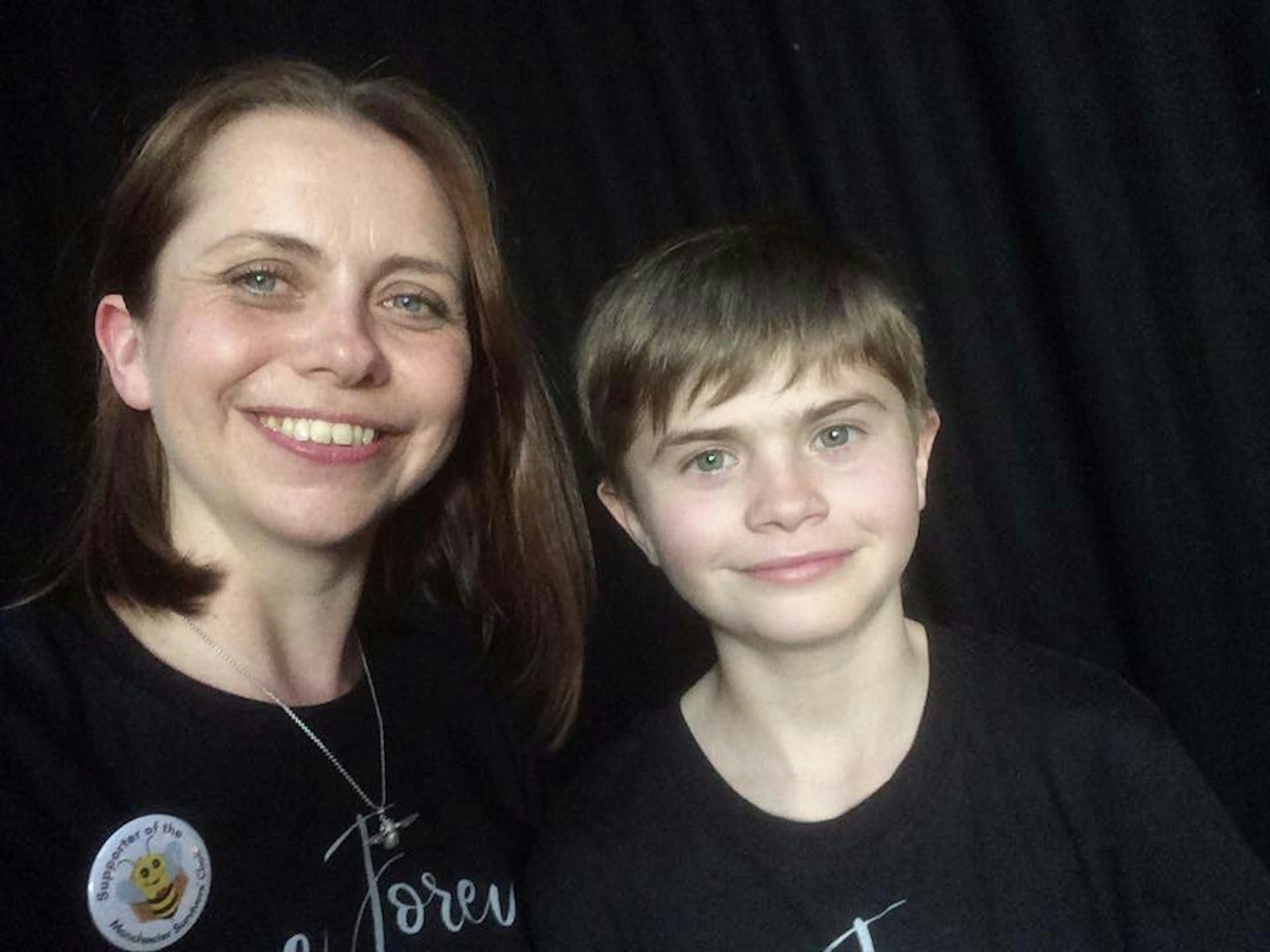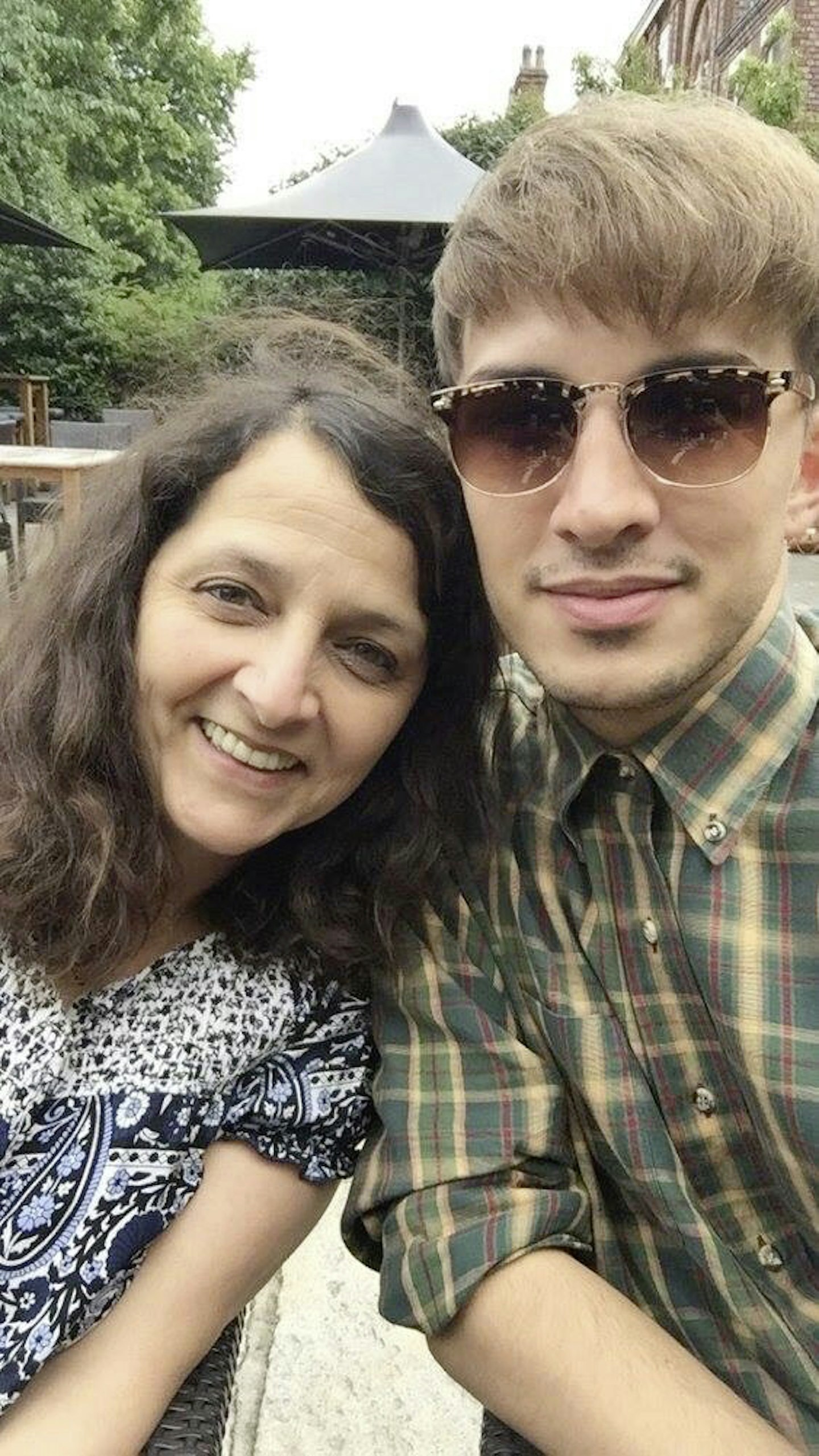‘People think it gets easier with time, but I know lots of survivors of the attack who struggle with PTSD around this time every year, and it will go on for weeks. This sense of remembering certain moments, it’s really common.’
Cath Hill, 47, is one of the 14,000 people present when terrorist Salman Abedi attacked Ariana Grande’s Manchester Arena concert in 2017. As 22 May marks the five-year anniversary of the attack that killed 22 people, aged eight to 51, and injured more than 1,000, Cath considers herself to be one of the ‘unlucky lucky ones’: she survived, but the memories continue to haunt her.
Bomber Abdei, 22, died at the scene while his brother, Hashem – who sourced explosive materials for the bomb – is serving a life sentence in Belmarsh prison. An independent inquiry found there were ‘significant missed opportunities’ around arena security, while an ITV documentary last month reported how the police response meant emergency services were prevented from attending to victims for two hours (Greater Manchester Police have apologised for ‘failings’).
For survivors like Cath, the findings have been difficult to hear. ‘All I can think about are the people who lost children; it’s really hard to hear all of the missed opportunities that could have prevented it,’ she tells Grazia. She attended the concert with her youngest son, 10 at the time, after winning tickets through her husband’s work.

‘We left at the same time as the bomb exploded, but from a different exit – everyone was running and hiding thinking there was a gunman. I could see a lot of parents doing the same thing as me, telling their kids, “There’s nothing to worry about, let’s just get to safety.”’
In the aftermath, Cath experienced survivor’s guilt. ‘It took me months to realise that my mental health was starting to make me physically unwell. You’re hypervigilant when you’re out, feeling like it might be about to happen again. Your heart starts racing in busy places. At 10, my son had just started doing things by himself and he stopped completely. I’m certain it has changed his sense of safety in the world.’

That is why, say those affected, remembrance is so important. Student Lucy Jarvis, now 22, lay on the floor of the city’s Victoria railway station for ‘nearly two hours’ before she was taken to hospital, after sustaining serious internal injuries in the attack, which took years of rehabilitation. ‘It’s hugely important to not forget,’ she told Metro. ‘It was such a major event and it was something that changed so many people’s lives.’
Figen Murray, 61, lost her 29-year-old son Martyn, who was attending the concert with friends. ‘I had gone to bed and woke up to my daughter checking my phone to see if Martyn had called. She said, “His friends keep asking me if he phoned, they’ve gone to a gig together and got separated. There was an incident.” We stayed up watching the news and, about 45 minutes after the attack, I had a really strange feeling in the pit of my stomach. I just suddenly didn’t feel him any more. Twenty-four hours later they told us Martyn was one of the 22 who died.’
Figen describes Martyn as 'very life-embracing'. 'He was hilariously funny, one of those people who would see the funniest things in the most ordinary situations,' she recalls. 'He was kind, generous and you always knew when he was in the room, the roof just raised.'

For a year after he was killed, she described herself as being ‘zombified’ - before she decided to campaign for what is set to become Martyn’s Law, ensuring stricter security measures in public places. ‘I looked into it and found out [security measures] are only a recommendation by the Government, not a legal obligation.’ Now, she educates the public on the dangers around this, and how to respond in a terrorist attack (she advises everyone downloads the ProtectUK app).
‘What I take from it is women and girls were targeted but women have come together to make things better after it,’ says Cath, who has set up the Manchester Survivors Choir. ‘We will never forget what happened, but we have done what women do best: made a real difference.’
